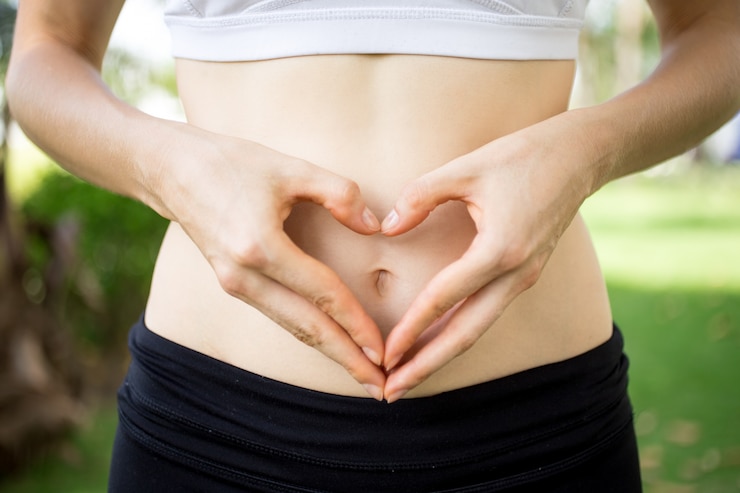
Optimizing digestion is crucial for overall health. Issues like bloating, constipation, and more serious conditions, such as leaky gut, candida overgrowth, and heartburn, can really detract from feeling well.
I used to deal with persistent digestive problems myself, ranging from heartburn to constipation. These days, I’m free from those issues except for the occasional bloating right before my period, which is quite normal.
Here are five reasons why your digestion might not be at its best and suggestions on how to improve it. Below the video, I explore each reason in detail and offer solutions.
1. **Not Drinking Enough Water**
Staying hydrated is essential for smooth digestion. Even mild dehydration can lead to constipation and slow down your digestion.
Water plays a role in saliva production, which contains enzymes that help break down fats and carbohydrates in the mouth. It’s also critical for stomach acid formation and for producing the mucus that shields your stomach lining. In the small intestine, water is crucial for nutrient absorption, while in the colon, it helps absorb minerals and soften stool, making elimination easier.
**Solution:** Make sure to drink plenty of water or herbal teas throughout the day. Aim for pale yellow urine to confirm adequate hydration. Additionally, include hydrating foods in your diet like fruits and vegetables such as apples, pears, mangoes, papayas (which are great for protein digestion), cucumbers, romaine lettuce, sweet peppers, broccoli, and Brussels sprouts.
2. **Eating Without Hunger**
Many overlook the importance of eating only when truly hungry. When you’re hungry, your body has the enzymes and acids ready to digest food.
Hunger signals, like tummy growling, indicate meal readiness. If these aren’t present, it’s not time to eat, barring conditions like eating disorders or low stomach acid. Though it can be hard to schedule meals around family obligations, ignoring hunger cues can lead to indigestion and bloating. Conversely, ignoring signals for too long can cause severe stomach pain.
**Solution:** Pay attention to your body’s hunger cues. Consider using a hunger chart for better awareness and choice-making.
3. **Low Stomach Acid**
Many people actually have low stomach acid, or “hypochlorhydria,” contrary to the common belief that high stomach acid is more prevalent. Stomach acid is crucial for efficiently breaking down proteins, absorbing nutrients, and keeping harmful bacteria at bay.
**Solution:** You can naturally boost stomach acid with options like raw, unpasteurized apple cider vinegar (ACV). A simple method is to mix one tablespoon of ACV with half a cup of water and sip it before meals. Consider digestive bitters, lemon water, or betaine + HCL supplements to further support acid production.
4. **Excessive Sugar and Processed Foods Consumption**
This is straightforward! A diet rich in sugar and processed foods often lacks fiber, which is essential for gut health.
Just like a bank account, your body benefits from nutritious deposits. However, processed foods deplete resources since they require more nutrients to process and detoxify. Coupled with stress and inactivity, overconsumption can lead to digestive troubles and health issues like bloating, low energy, and weight gain.
**Solution:** For a structured approach, try cutting back on sugar with programs like the 21 Days to Joyous Health.
5. **Improper Bathroom Posture**
Modern toilets aren’t designed for optimal pooping posture. Using a stool or squatty potty can align your pelvic floor correctly, easing the process.
The traditional toilet posture creates a kink in your rectum, obstructing flow. Correcting this can transform your bathroom routine!
**Solution:** Consider using tools like a squatty potty to improve your posture during bathroom visits.
I hope these tips enhance your digestion. Feel free to ask questions below—I’m here to help!
—
**Community Questions and Answers:**
Q: Do I need to drink ACV every day for it to work?
A: No, it’s not necessary to drink ACV daily. It’s often beneficial before meals when digestion typically slows down, such as dinner. If you regularly experience bloating, consider a nutritionist for personalized advice.
Q: Any tips besides changing bathroom posture?
A: Yes, using water instead of toilet paper is more effective and environmentally friendly, though not commonly seen in some places like Ontario.
Q: Struggling with a sugar fix?
A: Emotional triggers often cause sugar cravings. Finding non-food outlets like journaling, podcasts, or walks can help. Consider joining a supportive community like 21 Days to Joyous Health for guidance.
—
Your questions and experiences are invaluable! Share them below, and let’s support each other in achieving better health.


